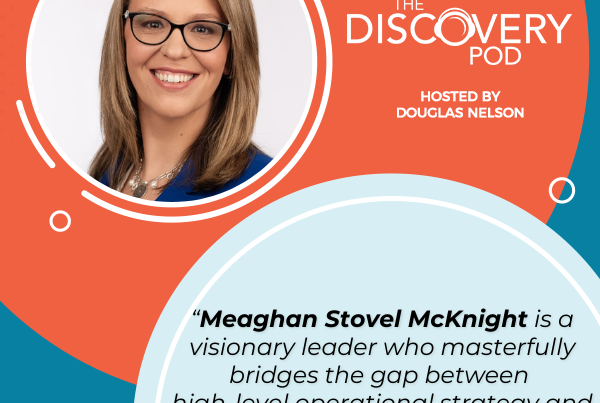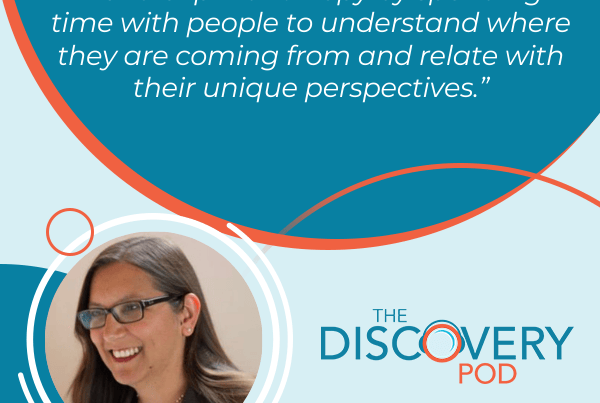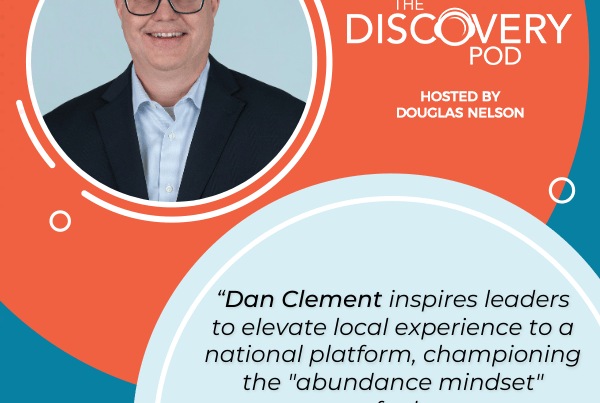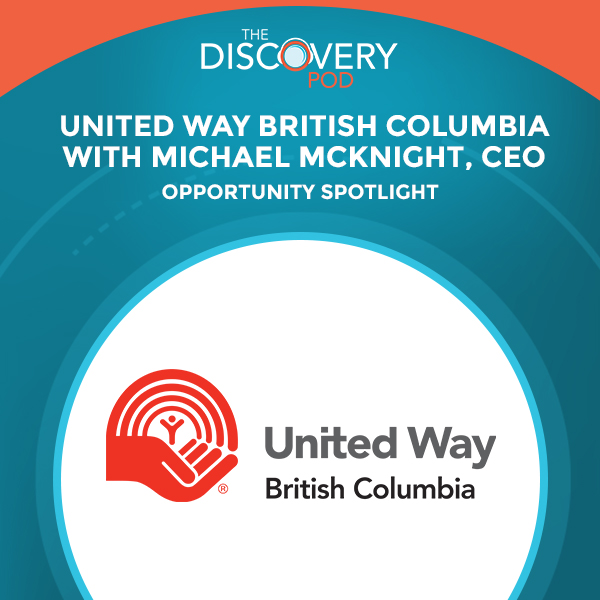
What if leading one of North America’s largest United Ways meant revolutionizing charitable work itself? Michael McKnight, CEO of United Way British Columbia, reveals the hunt for a visionary Chief Development Officer, a role that’s not just about fundraising, but about reshaping the future of philanthropy. Forget dusty traditions; this is about leveraging cutting-edge tech like Food Link, fostering deep community trust, and igniting province-wide impact. Michael shares why the perfect candidate will dive into a world where collaboration isn’t just encouraged, it’s essential, and where every day offers the chance to transform lives. This isn’t just a job—it’s a chance to be at the forefront of a movement, pushing a 95-year-old institution into a bold new era and asking, what could charity truly achieve with the right leader at the helm?
—
Listen to the podcast here
United Way British Columbia With Michael McKnight, CEO
I have the great pleasure of speaking with Michael McKnight. Michael is the CEO of United Way British Columbia, based here in the Lower Mainland, but with provincial reach that I’m sure we’re going to talk a lot about, for that matter.
‐‐‐
Welcome, Michael, to the show.
It is wonderful to be here.
Thank you. In this episode, we’re going to be talking about the chief development officer role, who is going to lead fundraising, philanthropic efforts, and the campaign that United Way is very well known for over the next little while. Before we talk about that, I want to set the stage a little bit of the context. People know the United Way name, certainly, but tell me from your perspective what exactly United Way British Columbia is for those people who may not know much about it. What is it? What does it do?
United Way BC: Beyond The Legacy Brand
Thanks for the opportunity to talk about it, because most people know United Way as almost a bit of a legacy brand in the philanthropic space. It started in the US many years ago. It has been here in British Columbia for 95 years. Most people have a historic perspective on what the organization does. Its main reason for being has been a federated fundraiser. To the credit of our founders, that worked great in British Columbia.
Philanthropies changed. Communities have changed. Our United Way, in particular here in British Columbia, has recognized some of the changes that have happened, and we did take the opportunity to question our reason for being. We have created a new model of United Way that focuses on identifying gaps in social issues, finding solutions to those issues, and engaging donors and other funders in scaling solutions to some of the fundamental challenges that we have in our communities.

United Way British Columbia: We have created a new model of United Way that focuses on identifying gaps in social issues, finding solutions to those issues, and engaging donors and other funders in scaling solutions to some of the fundamental challenges that we have in our communities.
From a very high level, walk me through some of those challenges. Some of them I’m familiar with. Certainly, emergency response as it relates to some of the issues with fires, for instance, food security, and seniors. What are some of the other key gaps that United Way is addressing in that respect?
Solving Real-World Problems: The Story Of Food Link
The food security one is interesting because food security has been an issue for a long time. When COVID hit, United Way stepped into that space, in part because we were able to access food supplies and provide them to food banks and other food distribution organizations. During that time, we brought together a bunch of food security experts in the province and asked, “What are the biggest challenges?” Almost all of them said, “We have enough food in the province. It’s getting it from where it is to where it needs to be.” A light went on that maybe there’s a role we could play.
We ended up creating an app called Food Link. I call it the Facebook Marketplace for food in British Columbia. It’s where the suppliers of food, whether it’s retailers, farmers, or others, instead of either taking food to the landfill, which they ought to do, or dropping it off at the local food bank, which may or may not need it, can post it on our app. A food distribution organization, a food bank, or others who need that food can claim it. United Way will find a volunteer to pick it up or drop it off.
We’re trying to connect the dots of where this abundance of food that experts say we have in British Columbia with those who most need it when they need it, and the type of food they need. We’ve been able to play a central role in creating a more effective and efficient system in our province to support vulnerable British Columbians. That’s an example.
That’s such a great example because it is so representative of the kind of work you’re doing and the evolution, if you will, in United Way’s work. I’m guilty as charged. I’m one of those legacy United Way people. I was what was called a low-end rep many years ago when it was a single United Way. With such provincial amalgamation, you’ve been able to expand your scope exponentially in the impact you’re having. It’s a compelling cause and opportunity that you’ve got, fundamentally. We were speaking offline a little bit about your background, coming from the world of social work. What is it that has brought you to this work? What is your why? Why do you do the work you do? What do you find most compelling about leading United Way at this stage?
Michael McKnight’s “Why”: Passion And Purpose At United Way
I’ve always been most motivated by helping others. I’ve spent some time in the private sector. I started my career as a social worker. I’ve spent some time in the federal government. That whole notion of the value proposition of getting up every single morning and being able to help somebody who needs it has motivated me from the earliest time that I can think of. I’ve been CEO of 1 of 2 charities, Big Brothers Big Sisters of Canada, and I am CEO of United Way here in British Columbia. It’s something that I feel privileged to do each and every day. It’s not easy, but I can’t think of a better reason to get up every morning than to be part of an organization that’s there when people need it.

United Way British Columbia: You get a sense of success when you are almost the go-to organization for many in the province when there is a pressing social need.
That’s excellent. During your tenure, then, what are you most proud of? What are you most proud of from an institutional perspective and an organizational perspective, for that matter?
We talked a little bit about that change in United Way’s value proposition or its business model. For me, the ability to take a 95-year-old organization and redirect it to what we’re calling a modern United Way, a United Way that has rethought its value proposition and rethought how it does its business, the result of that is through a diversification of revenue.
We are one of the biggest, if not the biggest, United Way organizations in North America by revenue. It has been a fabulous team effort, but one of the great metrics of our success has been that people come to us instead of us having to go to them with our handout. You get a sense of success when you are almost the go-to organization for many in the province when there is a pressing social need.
There’s such stability. There’s such foresight. There’s such creativity that’s happening.
Trust. We have a track record of being able to deliver. We have incredible relationships. For me personally, one of the most valuable parts of my job is that I get to work with such fabulously dedicated people from all parts of the province, whether it’s business leaders, other organizational leaders, or people who are willing to be loan representatives and spend four months of their time with us to help us raise the money required to do the work we do. We have heads of banks, crown corporations, labor unions, and post-secondary institutions who volunteer with United Way because they understand and believe in the work that we do.
For charitable organizations to be successful, they need capacity. Share on XTransforming Charity: Modernizing United Way BC
That community involvement is the hallmark of United Way, or a hallmark among many. Before we pivot to the CDO and the CDL responsibilities specifically, looking ahead, what excites you most about the near future of United Way BC’s work? What’s on the horizon here that’s most compelling and exciting for you?
One of the small market characteristics of what we refer to as a modern United Way, where we could translate that into a modern charitable organization, is that charitable organizations to be successful need capacity. They need to be able to use data, protect data, and transition to a digital world. They need to be able to do a lot of things that a certain capacity is required to be successful at.
We looked historically at twelve United Way organizations in the province. We consolidated them into one, the final one being a merger with Victoria in the last few months. We’re one single organization in the province. It does allow us to bring that specialization of our staff and the competency and capacity that one organization has to all parts of the province. We’ve seen that translate into significant government contracts that allow us to expand pilot projects into services that cover the entire part of British Columbia. To me, there’s an exciting opportunity to translate things that happen and have been successful locally into province-wide programs and initiatives.
While we can believe in and invest in a digital relationship, at the end of the day, it's still a face-to-face kind of relationship that means the most in the philanthropic context. Share on XFair enough. That’s great. That’s an excellent context, and so exciting for the future. Into that future, we’ll set up a new chief development officer to work very closely with you and the team on fundraising and philanthropic work. What is this person going to be doing in your view? What do you envision them doing? What are the greatest needs from that space?
The Ideal Chief Development Officer: Relationship-Driven Leadership
Relationships are so important in the work we do. While we can believe in and invest in a digital relationship, at the end of the day, it’s still a face-to-face kind of relationship that means the most in the philanthropic context. I do want to find a candidate who loves the relationships that exist in a not-for-profit context, such as working with donors, working with volunteers, being out in the community, love telling stories about the impactful work of United Way, and can be that person who is most motivated by getting out and honestly selling what United Way is doing. That, to me, is the key characteristic.
Secondly, we have a very strong senior leadership team and talented people at United Way. They need to love being part of a team as well. Another is working collaboratively. I’ve worked very hard over the last number of years to break down that stereotypic silo structure where marketing is doing its own thing independent of what fundraising is doing and independent of what our community investment people are doing. We’ve all been part of that story before. We’ve been successful enough that there is a high degree of collaboration. Somebody needs to be part of that belief that collaboration makes us stronger and is willing to be part of that.
We have our fundraising team. We have two components to this role. One is overseeing our workplace fundraising, which is the traditional United Way responsibility. We have about 300 workplace campaigns around the province that this person would oversee. We have our major fundraising gift group. They need to be a strong leader, a bit of a visionary, a bit of a motivator, and a bit of a collaborator. They need to ensure that the team is successful in the significant responsibility they have.
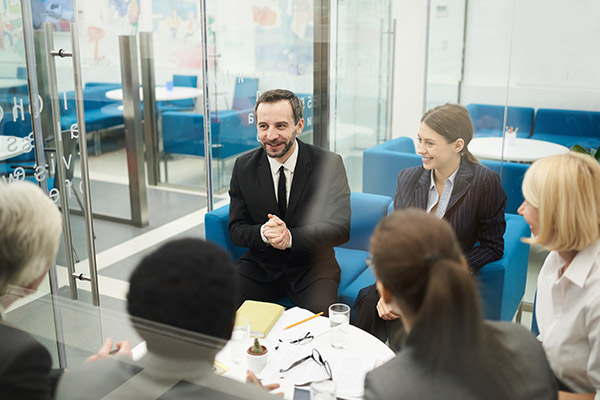
United Way British Columbia: We don’t just see it as a donor journey. We see it as a journey that anybody who interacts with us would have—high quality, consistent, and meaningful.
One thing that has come through in my conversations with you and the other leaders at United Way has certainly been around that donor experience. Donors come to the United Way through all kinds of channels, through the workplace, through major gifts, and through emergency response, coming forward to you proactively because they know they want to support and don’t know where else to go.
The United Way has such deep roots. They know that United Way can be a way to prioritize funding and make the best use of it fundamentally. No matter how people come into United Way through that donor journey, making sure they’re well-treated, and in turn, those gifts are stewarded and reported back appropriately, for sure.
To go one step further, we don’t just see it as a donor journey. We see it as a journey that anybody who interacts with us would have. It’s high quality. It’s consistent. It’s meaningful, whether it’s a donor, a volunteer, a government funder, or even a subcontractor of ours, the agencies that we work with to fulfill the programs on a day-to-day basis. We have somebody who oversees that whole experience, of which a donor is a part.
For a charitable organization to be highly relevant, it needs to be seen as responsive and reflective of its community and able to demonstrate impact. Share on XFair enough. Tell me. Why would someone want to leave their role and come join you at the United Way? What are some compelling reasons for someone to join United Way?
It’s an exciting organization. I’ll get in trouble for saying this, but not every United Way is that. We’ve been able to transform the organization so much so that it is dynamic. It is growing. I have this philosophy that United Way needs to be everywhere all the time. For a charitable organization to be highly relevant, it needs to be seen as responsive and reflective of its community and able to demonstrate impact. These are all things that we’re invested heavily in. This new chief development officer will be part of that leadership around how we can take an incredibly solid foundation and make it the leading charitable organization in our province, if not the country or North America. We have that potential. This person will be right there on the doorstep helping us in that quest.
To use the fundraising term, that’s a great case for the role, for sure. I appreciate that. I would encourage anyone who’s interested or curious to take a look at the brief and take a look at the United Way’s webpage, which is a fantastic site. There is are lot of depth on the impact, the volunteers, and the leadership. There are lots that are compelling around the work you’re doing as an organization. People can reach out to me at [email protected]. Visit our respective organizational websites for more information. It’s a great opportunity for somebody to do some compelling work with a great leadership team at an important time in the lifespan of an organization.
It is an exciting time, I will say that.

